Welcome to my blog
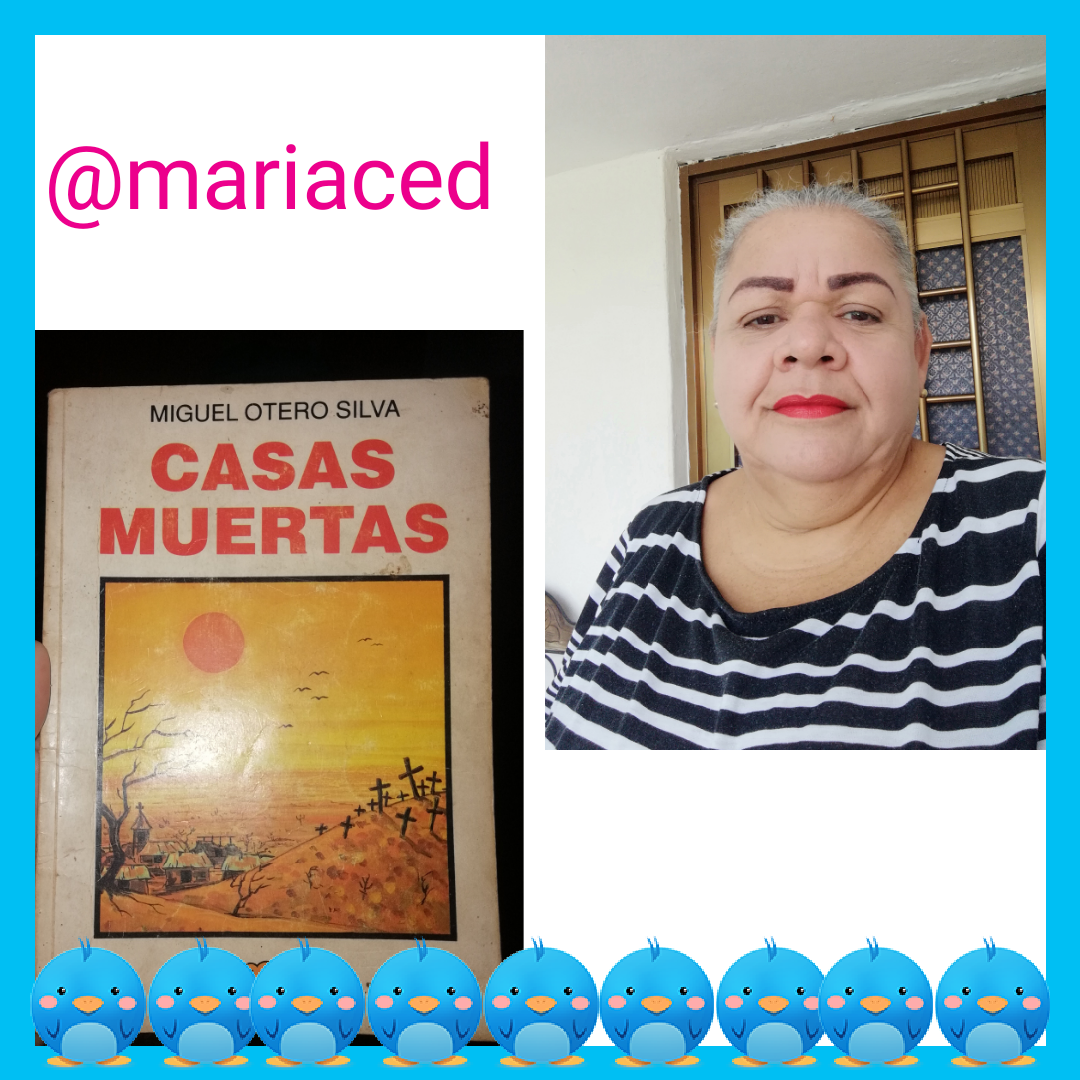
Here the author tells a sad and dramatic story of a town that was devastated by a serious epidemic of Malaria and hematuria; to which was added the abandonment and desolation product of the Caudillismo and the civil wars; also nature doing its part, heavy rains wreaked havoc on uninhabited houses. All this caused the inhabitants of Ortiz to flee seeking relief and hope to other more populated lands in order to save themselves from so much poverty, hence its name Casas Muertas
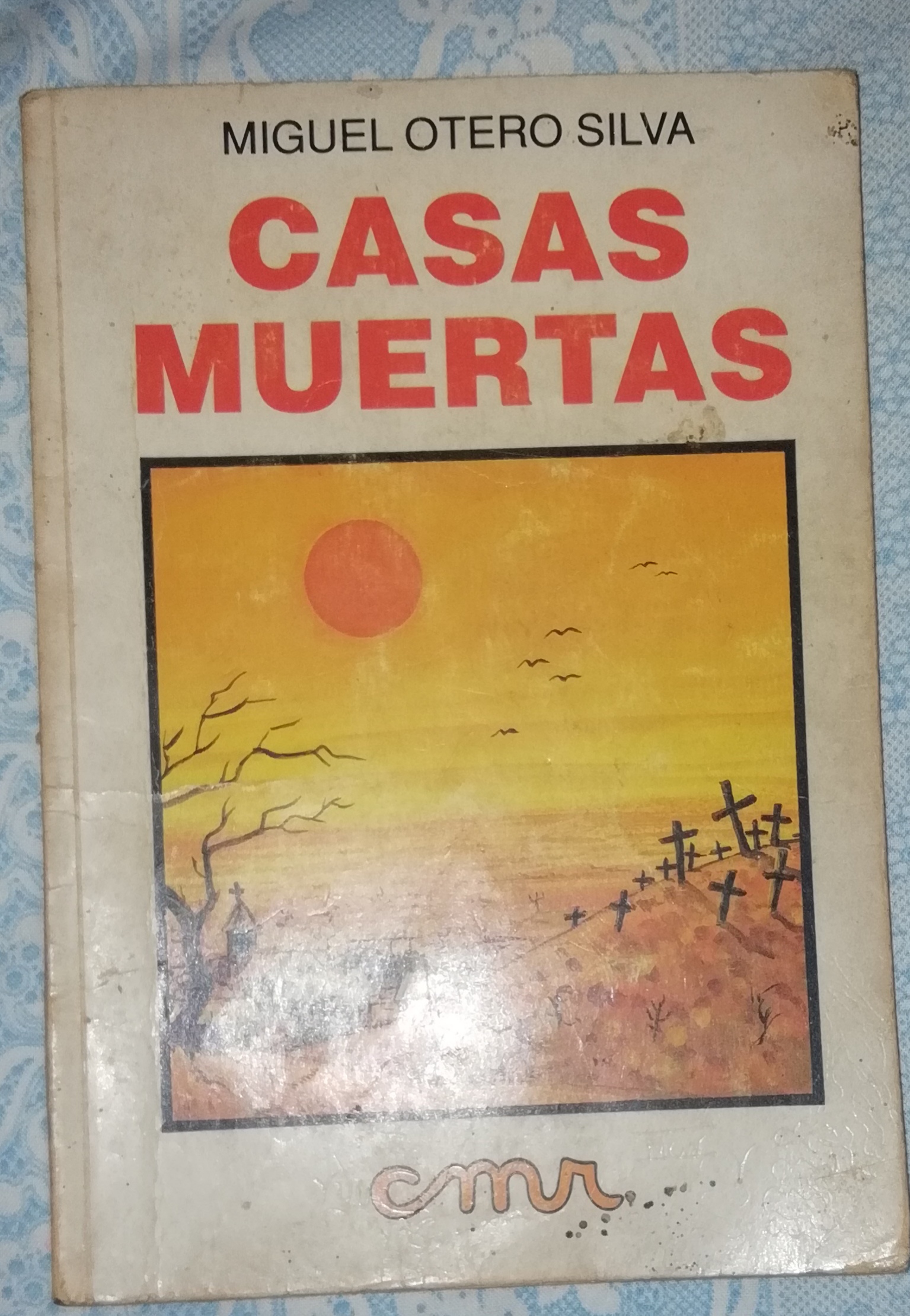
Un cariñoso saludo a todos los Hivers amigos que se tomen el tiempo para leerme en esta maravillosa comunidad Hive Book Club, esperando se encuentren repletos de salud y tomando todas las medidas necesarias para salir victoriosos de esta dura prueba que nos ha correspondido afrontar. Leer es , para mi algo imprescindible en mi día a día, forma parte de mi rutina diaria; hoy quiero compartir con todos mi impresión con esta novela Venezolana, una de las mas conocidas del autor Miguel Otero Silva Casas Muertas, escrita en el año 1955, Premio Nacional de Literatura en 1956. Se popularizo no sólo en Venezuela, sino en Latinoamérica; es una historia que se desarrolla en un pequeño pueblo del Estado Guárico, conocido con el nombre de Ortíz
Aquí el autor relata una triste y dramática historia de un pueblo que quedó devastado por una grave epidemia de Paludismo y hematuria; a lo que se sumaba el abandono y desolación producto del Caudillismo y las guerras civiles; además la naturaleza haciendo su parte, las fuertes lluvias causaban estragos a las casas deshabitadas. Todo esto, provocó que los habitantes de Ortiz huyeran buscando alivio y esperanzas a otras tierras mas pobladas a fin de salvarse de tanta pobreza, de allí su nombre Casas Muertas
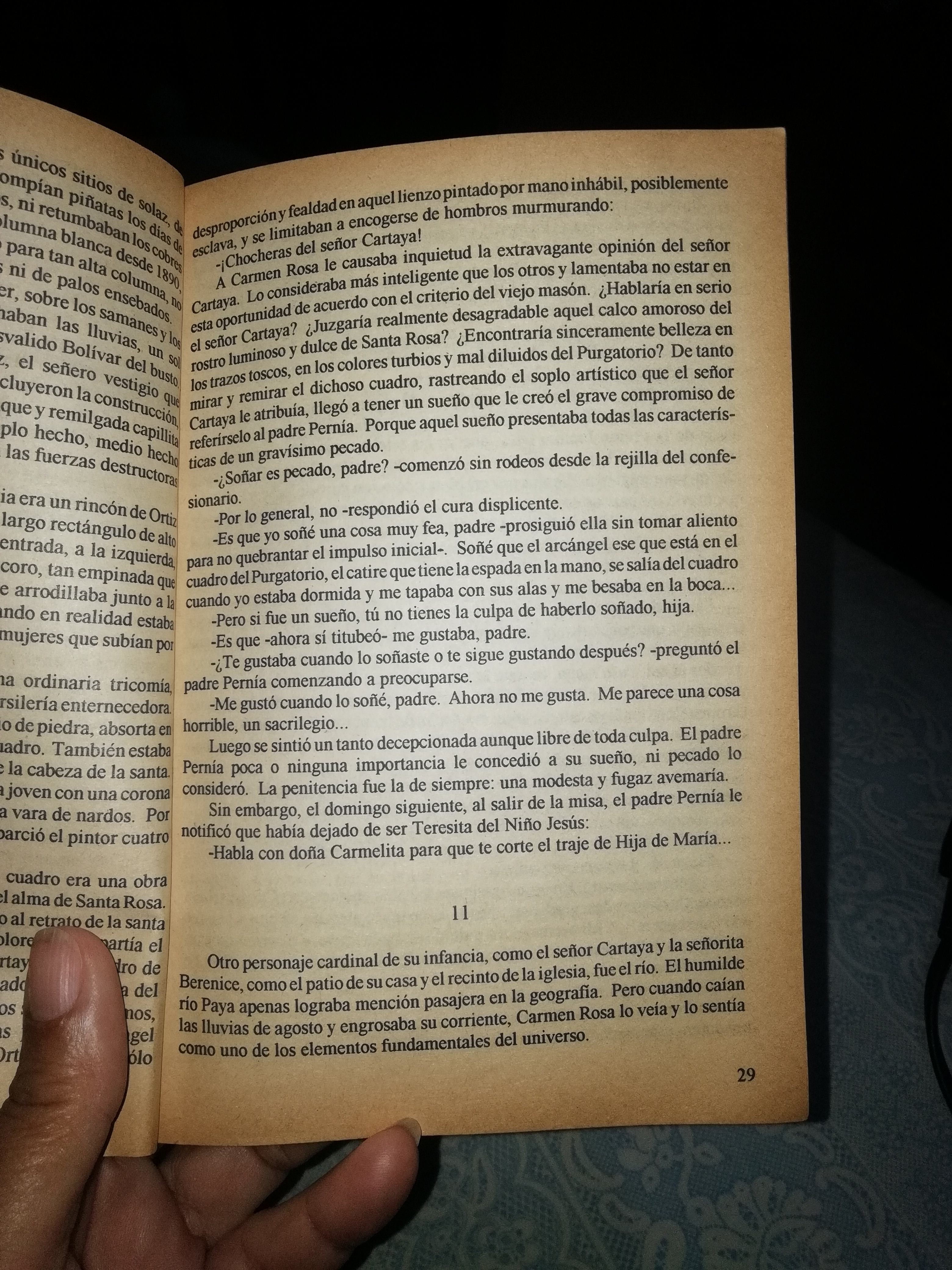
The two faces of the town of Ortíz are narrated, that happy town, full of hard-working and industrious people and that of an Ortíz plunged into despair and poverty, where with such decadence, most of its inhabitants went to other cities in search of better income from the economic advance that brought about the oil revolution in 1975. Not only did Ortíz leave an abandoned town to go to the capital, other towns in the country were also affected by the oil boom. Casas Muertas is a story with a very special peculiarity, because it shows emotions such as nostalgia, grief, sadness, desolation, ruin; It is one of the first novels narrated in Venezuela.
I believe that Miguel Otero Silva was a visionary when he wrote this novel for history, because in this dramatic portrait he describes a town that almost disappeared as a result of desolation and death, disease and extreme poverty; This is how we can visualize it in today's Venezuela, where families have been fractured, because some go desperate to other directions, children raised by grandparents because parents go out in search of better living conditions, youth and professionals have emigrated, looking for a better future. So, when I re-read this novel, I consider that the author's objective was a warning voice, a call for reflection by the Venezuelan not to fall into temptation, it refers to the fall of man and of material things that are he insists on building and that in the end you bring nothing, you take nothing; is in charge of illustrating how the peoples of Latin America have been subjected to false progress and uneven modernization; now attacked by this pandemic that has left death and desolation.
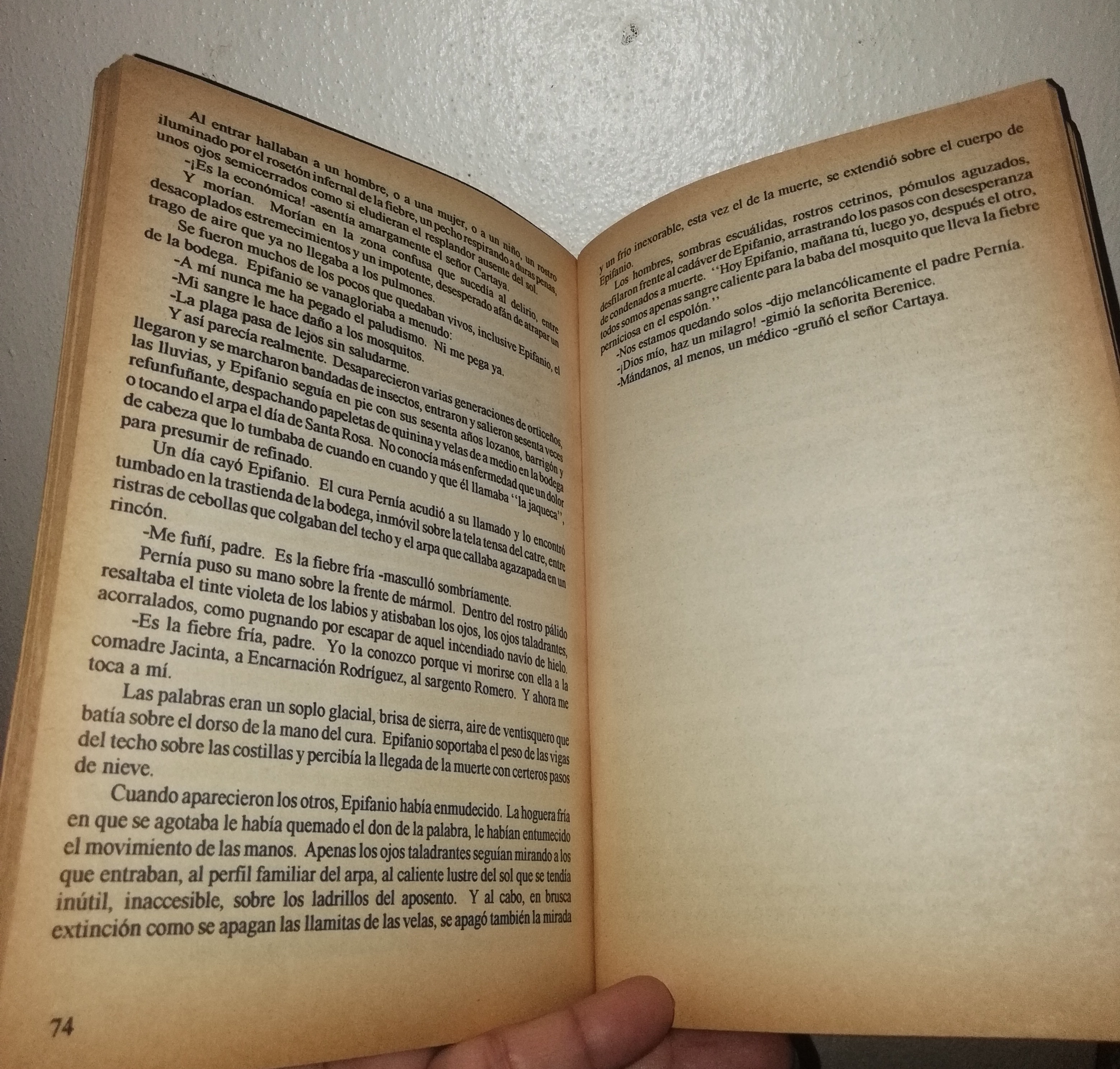
If we stop to analyze this novel with the circumstances that we currently live in, we could determine that Venezuela is now the entire town of Ortíz If you read this far, I await your comments.
Se narran las dos caras del pueblo de Ortíz, aquel pueblo alegre, repleto de gente trabajadora, laboriosa y la de un Ortíz sumido en la desesperanza y la pobreza, donde con tanta decadencia, la mayoría de sus habitantes salieron a otras ciudades en busca de mejores ingresos por el avance económico que trajo consigo revolución petrolera en el año 1975. No sólo Ortíz fgue un pueblo abandonado para salir a la capital, otros pueblos del país también fueron afectados por el boom petrolero. Casas Muertas es una historia con una particularidad muy especial, porque muestra emociones como nostalgia, pesadumbre, tristeza, desolación, ruina; es una de las primeras novelas narradas en Venezuela.
Considero que Miguel Otero Silva, fue un visionario cuando escribió para la historia esta novela, debido a que en este retrato dramático describe un pueblo que casi desaparece producto de la desolación y la muerte, las enfermedades y la pobreza extrema; es así, como podemos visualizarlo en la Venezuela actual, donde se han fracturado familias, porque algunos salen desesperados a otros rumbos, hijos criados por los abuelos porque los padres salen en busca de mejores condiciones de vida, la juventud y los profesionales han emigrado, buscando un mejor futuro. Entonces, al volver a leer esta novela, considero que el objetivo del autor, era una voz de alerta, un llamado a la reflexión del venezolano de no caer en la tentación, hace referencia a la caída del hombre y de las cosas materiales que se empeña en construir y que a la final nada traes, nada te llevas; se encarga de ilustrar como los pueblos de Latinoamérica han estado sometidos a un falso progreso y a una modernización desigual; ahora atacados por esta pandemia que ha dejado muerte y desolación.
Si nos detenemos a analizar esta novela con las circunstancias que vivimos actualmente, podríamos determinar que Venezuela toda es ahora el pueblo de Ortíz Si leíste hasta aquí, espero tus comentarios.
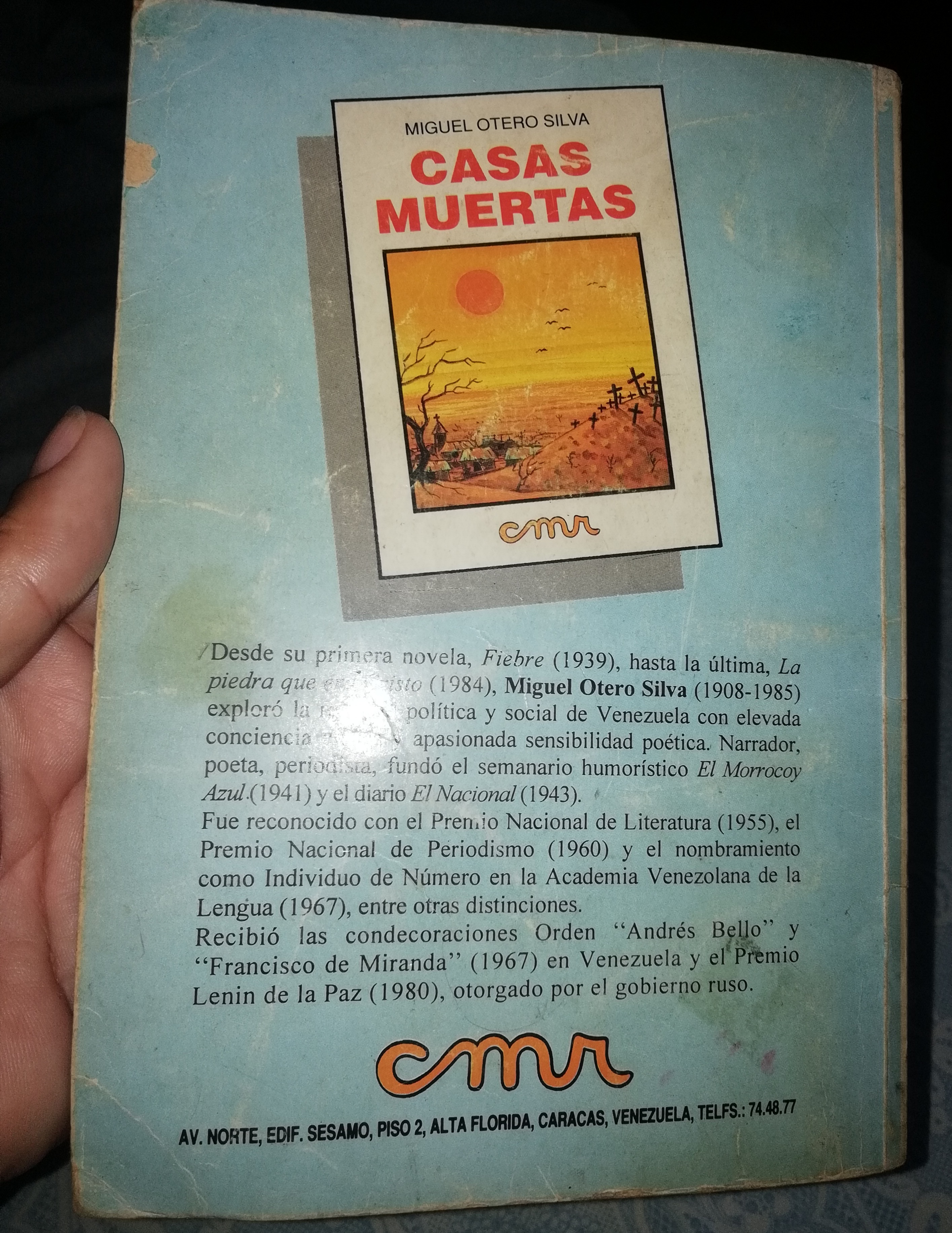
Thank you for your visit, I await your comments that I will receive with love.
Las fotos son de mi legítima propiedad tomadas con mi teléfono Huawei